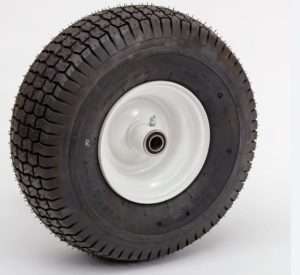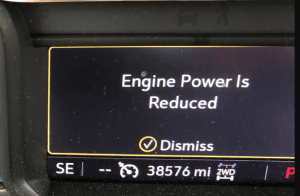Revving Up Your Ride: How to Fix Reduced Engine Power in Your GMC Sierra
When there is a reduction in engine power, it can hamper the overall performance and lead to safety issues. Engine power is essentially the force that propels your truck, and without it functioning at its best, you may experience difficulty accelerating or climbing hills.
There are several reasons why GMC engines may suffer from reduced engine power. Some of these common issues include faulty parts such as malfunctioning oxygen sensors, catalytic converters or throttle bodies.
Other issues may stem from problems with the fuel or ignition system or even problems with your truck’s Electronic Control Module (ECM). Regardless of what is causing the issue, it’s important to diagnose and fix it as soon as possible to prevent further damage to your vehicle and avoid any safety hazards on the road.
Engine power reduced means.
Engine power reduced is a term that refers to the inability of a vehicle’s engine to deliver its maximum performance. It is when your engine loses power, and you feel like your car can’t go as fast as it usually does. It’s often accompanied by a warning light on the dashboard or an error message on the vehicle’s display screen.
There are many reasons why your GMC Sierra may experience reduced engine power, including mechanical faults, electrical issues, and software problems. A malfunctioning oxygen sensor can also cause engine power reduction because it results in the incorrect air/fuel mixture ratio.
Another common culprit is a faulty throttle body that restricts airflow into the engine, leading to less power output. When you experience reduced engine power in your GMC Sierra, you’ll notice several symptoms such as slow acceleration and difficulty in reaching high speeds.
You may have trouble getting up hills or overtaking other vehicles on highways. You may also hear unusual noises from under the hood or smell burning rubber or oil due to excessive strain on the engine.
In some cases, reduced engine power may cause stalling or even prevent your GMC Sierra from starting altogether. Therefore it’s essential to take immediate action if you notice any of these symptoms to prevent any further damage to your vehicle.
Importance of engine power in vehicles.
Engine power is undoubtedly one of the most vital components that determine the efficiency and performance of a vehicle. The power generated by a vehicle’s engine directly influences its ability to accelerate, tow heavy loads, and climb hills easily.
The greater the engine power, the better the performance of a vehicle. For GMC Sierra owners, engine power is crucial because these models are designed for heavy-duty workloads such as hauling and towing.
The ability to diagnose reduced engine power issues efficiently in your GMC Sierra is critical because neglecting this issue will not only render your vehicle useless but can also lead to severe safety hazards. Reduced engine power can cause a sudden drop in speed when driving on highways or attempting to overtake other vehicles on busy roads.
This situation can be dangerous when sudden acceleration is needed in an emergency situation such as evading an obstacle or avoiding a collision. Therefore, it’s crucial for all GMC Sierra owners to understand their truck’s horsepower and maintain its optimal health at all times.
Reasons for Reduced Engine Power in GMC
GMC engines are designed to provide optimal power and performance, but sometimes the engine power may be reduced due to various reasons. Understanding the potential reasons for reduced engine power is essential for diagnosing the issue and fixing it effectively. Here are some of the common causes of reduced engine power in GMC vehicles.
One of the most common issues that lead to reduced engine power is a malfunctioning oxygen sensor. The oxygen sensor measures the amount of oxygen in the exhaust system and provides feedback to the engine control module (ECM) to adjust fuel consumption.
A faulty oxygen sensor can cause a lean or rich fuel mixture, leading to poor engine performance, rough idling, and decreased acceleration. When an oxygen sensor malfunctions, it can trigger a check-engine light on your dashboard.
Another reason for reduced engine power in GMCs is a problem with the throttle body. The throttle body regulates airflow into the engine by controlling the size of the opening in its butterfly valve.
When there’s an issue with this component, such as carbon buildup or damaged wiring, it can cause poor acceleration and even stalling when you try to start your vehicle. Other symptoms of a faulty throttle body include rough idling, lower gas mileage, and difficulty starting your car altogether.
There are several potential reasons for reduced engine power in GMC vehicles that owners should be aware of when diagnosing performance issues with their engines. Malfunctioning oxygen sensors or problems with throttle bodies are just two examples out of many possible causes that require close attention from drivers to avoid further damage or expensive repairs down the line if left unaddressed for too long.
Malfunctioning oxygen sensor, throttle body, catalytic converter, etc.
Malfunctioning oxygen sensors, throttle body, catalytic converters etc. are some of the most common issues that cause reduced engine power in GMC vehicles. Let’s dive deeper into each of these components to understand how they affect the performance of your vehicle. Firstly, a malfunctioning oxygen sensor can drastically impact the engine’s fuel efficiency and power output.
An oxygen sensor measures the amount of oxygen present in the exhaust gases before and after it enters the catalytic converter. If this sensor is damaged or fails to function correctly, it will send incorrect readings to the engine control module (ECM), resulting in inaccurate fuel-air mixture ratios.
This, in turn, affects engine performance and leads to reduced power output. Moreover, an impaired oxygen sensor can also damage other components such as spark plugs and catalytic converters.
Secondly, a faulty throttle body can also lead to reduced engine power in your GMC vehicle. The throttle body is responsible for controlling the amount of air entering your vehicle’s engine by regulating its opening size through a butterfly valve system.
If something goes wrong with this component such as dirty buildup or wear and tear on its mechanisms, it may not open or close properly causing problems with airflow and reduced acceleration. Common symptoms include poor gas mileage, rough idling idle speed fluctuation or even stalling while driving.
A damaged catalytic converter can also impact your GMC’s performance by reducing its ability to convert harmful exhaust gases into less toxic emissions. Catalytic converters use precious metals like platinum and palladium as catalysts that react with exhaust fumes to neutralize pollutants like carbon monoxide (CO) and nitrogen oxide (NOx).
If you have an issue with your catalytic converter such as clogged channels from excessive pollutants buildup or damage from overheating it will restrict airflow leading to slower acceleration times and low power output along with several warning signs like strange noises during startup , decreased fuel economy or decreased responsiveness while driving. These issues may also trigger your check engine light to turn on, indicating a problem.
Problems with the fuel system or ignition system
Problems with the fuel system or ignition system can cause reduced engine power in a GMC vehicle. A clogged fuel filter, bad fuel pump or pressure regulator, malfunctioning injectors, and dirty air filters are some of the most common issues that can lead to reduced engine power in GMC vehicles. The fuel system delivers gasoline to the engine and ensures that it works properly.
Therefore, any problem with the fuel system may lead to reduced engine power. One of the main culprits of reduced engine power is a clogged fuel filter.
The fuel filter prevents dirt and other contaminants from entering your vehicle’s fuel injectors. Over time, the filter may become clogged with impurities causing decreased performance or even complete failure of your engine.
Symptoms of a clogged fuel filter include difficulty starting your car or truck, loss of power while driving at high speeds and poor acceleration when you try to speed up quickly. Another common issue with the GMC’s fuel system is a malfunctioning injector(s).
Fuel injectors are responsible for delivering gasoline into each cylinder for combustion, which powers your vehicle’s movement. When an injector fails to properly deliver gasoline into one or more cylinders, it can cause misfires leading to reduced engine power.
Dirty injectors can also lead to this problem by causing uneven fuelling across different cylinders resulting in poor performance as well as increased emissions output from your vehicle. In addition to problems with the fuel system, issues within an ignition system can also create reduced engine power in GMC vehicles.
Problems like fouled spark plugs or bad ignition coils will prevent proper spark output causing a misfire that leads to rough idling and decreased ability for acceleration while driving at higher speeds on highways etc. Addressing any problems within these systems promptly is essential when trying to fix any reduction in performance that may be occurring within your GMC Sierra’s overall operations so it is wise to get them examined by an expert mechanic right away.
Overheating or low coolant levels
Another possible cause of reduced engine power in a GMC Sierra is overheating or low coolant levels. Overheating can damage the engine, leading to permanent and expensive repairs.
The engine relies on coolant to regulate its temperature, and when the coolant level is low, it cannot effectively absorb and dissipate heat. The most common reason for low coolant levels is a leak in the cooling system that can come from a damaged radiator, hose or water pump or simply not enough antifreeze in the system.
If your GMC Sierra’s temperature gauge indicates that it is running hot, do not ignore it; instead, immediately pull over and turn off the vehicle to avoid further damage. To prevent overheating on your GMC Sierra, always keep an eye on your temperature gauge and make sure your radiator has enough coolant.
It’s also essential to regularly inspect all hoses for cracks or wear and replace them if necessary. Additionally, check if there are any leaks under the hood by inspecting your garage floor where you park overnight regularly.
If you do notice any leaks, bring your vehicle to a mechanic as soon as possible before more severe problems arise. In case of overheating causing reduced engine power on your GMC Sierra due to low coolant levels , you should turn off the air conditioner immediately, turn up the heat on full blast (to transfer some of that excessive heat out of the cabin)and pull over safely if possible or as soon as feasible when safe place comes nearby .
Then finally switch off the engine completely to avoid further damage while waiting for professional help to arrive. Never try opening up a hot radiator cap since steam will be released at high pressure causing severe burns in addition to possible other damages caused by overpressure inside cooling system which could result in explosion like event happening under hood .
ECM problems
ECM problems can cause reduced engine power in your GMC Sierra. The Engine Control Module (ECM) is a vital component of the vehicle’s internal system, responsible for monitoring and regulating various processes. It receives input signals from sensors and other modules to control fuel injection, ignition timing, and other critical functions that affect engine performance.
If the ECM is not functioning correctly or is damaged in any way, it could cause a range of issues from poor fuel economy to complete engine failure. One common symptom of an ECM problem is reduced engine power.
When the module fails to regulate the proper amount of fuel flow into the engine, it can lead to a decrease in acceleration and overall performance. In some cases, the engine may even stall or fail to start at all.
Other symptoms include an illuminated check engine light and difficulty passing emissions tests due to high levels of pollutants released from the exhaust system. To diagnose this issue correctly, mechanics will use specialized diagnostic tools such as scan tools or multimeters to identify the specific problem with your GMC’s ECM.
Several factors can cause an ECM problem in your GMC Sierra- age, wear and tear from regular use, electrical interference damage due to water exposure or overheating issues are some examples. It’s crucial always to take preventive measures like regular servicing when dealing with these electronic components before they become problematic.
Regular maintenance also helps detect if there are any existing problems early on before they escalate further into severe issues requiring expensive repairs/replacements down the line. If you notice any signs of reduced engine power that we’ve discussed above or suspect an issue with your GMC Sierra’s ECM module don’t hesitate- consult a professional mechanic for immediate attention and repair solutions based on their diagnosis report for optimal performance recovery!
How to Fix Reduced Engine Power on your GMC Sierra
One of the most common reasons for reduced engine power in GMC Sierras is a malfunctioning throttle body. The throttle body controls the amount of air that flows into the engine and, therefore, affects how much power your vehicle produces. A faulty throttle body can result in a range of issues, including poor acceleration and reduced fuel efficiency.
If you suspect that your Sierra’s throttle body is causing the reduction in engine power, you should begin by checking it for any signs of damage or wear and tear. Start by removing the air duct from your Sierra’s throttle body.
Inspect it thoroughly for any visible signs of damage such as cracks or dents on its surface. If found, replacing the damaged part with a new one is highly recommended.
You should also consider cleaning your Sierra’s throttle body to ensure it operates at optimal performance levels. Use a clean rag or paper towel to wipe off any dirt, dust, or debris from its surface before reinstalling it back into its position.
Another common issue that leads to reduced engine power in GMC Sierra trucks is a faulty oxygen sensor. The oxygen sensor measures how much oxygen is present in your vehicle’s exhaust system and sends this data to the engine control module (ECM).
Based on this information, the ECM adjusts various components such as fuel injection timing and air/fuel ratios to optimize your truck’s performance levels. A malfunctioning oxygen sensor can lead to decreased fuel efficiency, rough idling, stalling at idle speed, hesitation during acceleration and overall loss of engine power.
If you suspect an issue with the oxygen sensor in your GMC Sierra truck , start by performing an OBD-II diagnostic test using an OBD-II scan tool . This test will help identify which specific sensor(s) are experiencing issues.
Once identified replace any faulty sensors with new ones as per manufacturer guidelines which usually vary depending on make and model . It’s best if this repair is done by a certified mechanic familiar with GMC engines.
Steps you can take to fix the issue yourself before seeking professional help.
The reduced engine power warning message on your GMC can be alarming. However, before you call a mechanic, there are several steps that you can take to fix the issue yourself. Here are some of the things that you can try:
1. Check for any loose or damaged wires: Sometimes, loose or damaged wires in the engine bay can cause reduced engine power. Inspect all of the wires and connections in the engine bay to ensure that they are secure and undamaged.
2. Inspect and clean the air filter: A clogged air filter can also lead to reduced engine power. Remove the air filter and inspect it for any dirt or debris.
If it looks dirty, clean it with compressed air or replace it if necessary.
3. Check and refill fluids: Low fuel pressure, low oil pressure, low transmission fluid levels, and low coolant levels can all cause problems with your GMC’s engine performance.
Check all of your vehicle’s fluids levels regularly and refill them as needed.
4. Inspect battery terminals: Faulty battery connections can cause power issues in your GMC’s electrical system which may result in reduced engine performance.
Make sure your battery terminals are clean tight and free from corrosion.
5. Reset ECM by Detaching Battery Terminals: In some situations where there is no underlying mechanical problem with your GMC but still experiencing Reduced Engine Power (REP), resetting ECM by detaching battery terminals for a few minutes will solve REP issue.
These steps could help resolve Reduced Engine Power (REP) on your GMC Sierra without spending much money on diagnostic fees or repairs from a professional mechanic. However, if none of these methods work for you or if you’re not comfortable doing them yourself, we recommend bringing your vehicle to a qualified mechanic for further diagnosis and proper repair recommendations that could save you time and money in long run by avoiding major breakdowns due to unresolved issues with REP warning message
When to bring your GMC Sierra to a mechanic for further repair and diagnostics.
When to bring your GMC Sierra to a mechanic for further repair and diagnostics: If the reduced engine power of your GMC Sierra continues even after performing the necessary DIY checks and fixes, it’s time to seek professional help.
A mechanic will conduct a thorough diagnosis with advanced tools and equipment to determine the root cause of the problem. They can also identify any underlying issues that may have caused reduced engine power, which might not be easily noticeable by you.
Another reason to visit a mechanic is if you hear or feel unusual noises or vibrations from your GMC Sierra engine. These symptoms could indicate more severe issues like engine misfires or worn-out components, leading to reduced engine power.
A professional diagnostic check will help identify these problems early on and prevent further damage. Moreover, if you notice any warning lights illuminated on your dashboard indicating an issue with your vehicle’s systems, it’s essential to bring it in for further repair and diagnostics as soon as possible.
Ignoring these warning signs can lead to more significant problems down the road and even pose safety risks while driving. If you’re experiencing reduced engine power in your GMC Sierra despite taking preventive measures, don’t hesitate to take it into a trusted mechanic for further evaluation and repair.
Conclusion
Reduced engine power in GMC Sierra can be a frustrating problem for vehicle owners. As we’ve discussed, there are a variety of reasons why this issue can occur, ranging from minor issues with the fuel system to more serious problems with the ECM or catalytic converter. Regardless of the cause, it’s essential that you take steps to fix the problem as soon as possible.
Not only will this improve your driving experience, but it will also help prevent further damage to your vehicle over time. One of the most important things you can do to address reduced engine power in your GMC Sierra is to stay on top of regular maintenance tasks.
This includes things like changing your oil and air filters regularly, checking your coolant levels regularly, and having your vehicle inspected by a professional mechanic on a regular basis. By staying on top of these tasks and addressing any potential issues early on, you can help prevent reduced engine power from becoming a larger problem down the road.
If you do experience reduced engine power in your GMC Sierra despite following these maintenance tips, don’t hesitate to seek professional help. A skilled mechanic will be able to identify the root cause of the problem and provide targeted repairs that will restore engine power to optimal levels.
While it may be tempting to try fixing the issue yourself or ignoring it altogether, doing so could lead to more significant problems down the line and potentially put you and other drivers at risk on the road. By taking prompt action and seeking professional assistance when needed, you can keep your GMC Sierra running smoothly for years to come.
Importance of regular preventive maintenance and immediate repairs when symptoms arise.
Regular preventive maintenance and immediate repairs are crucial for the longevity and performance of your GMC Sierra. Neglecting to address issues such as reduced engine power can lead to more significant problems down the line, resulting in expensive repairs.
Additionally, regular maintenance may help prevent these problems from occurring in the first place. To ensure that your GMC Sierra continues to perform at its best, it’s essential to follow the manufacturer’s recommended maintenance schedule.
Regular oil changes, tire rotations, and fluid level checks can all go a long way in preventing engine issues. In addition, scheduling tune-ups at recommended intervals can help diagnose potential problems early on and keep your vehicle running smoothly.
When you notice symptoms of reduced engine power such as poor acceleration or a loss of power, it’s essential to take immediate action. Delaying repairs could result in worsening symptoms or even cause additional damage to other parts of the car.
Ignoring warning signs could also be dangerous if they occur while driving on highways or busy roads. By addressing potential issues early on, you can avoid costlier repairs and keep your vehicle running safely and efficiently for years to come.
Maintaining your GMC Sierra through regular inspections and timely repairs is critical for preventing reduced engine power and other significant issues that may arise over time due to wear and tear or neglect. By being proactive with maintenance and repairs, you’ll not only save money but also enjoy a safer driving experience with improved performance from your vehicle.



